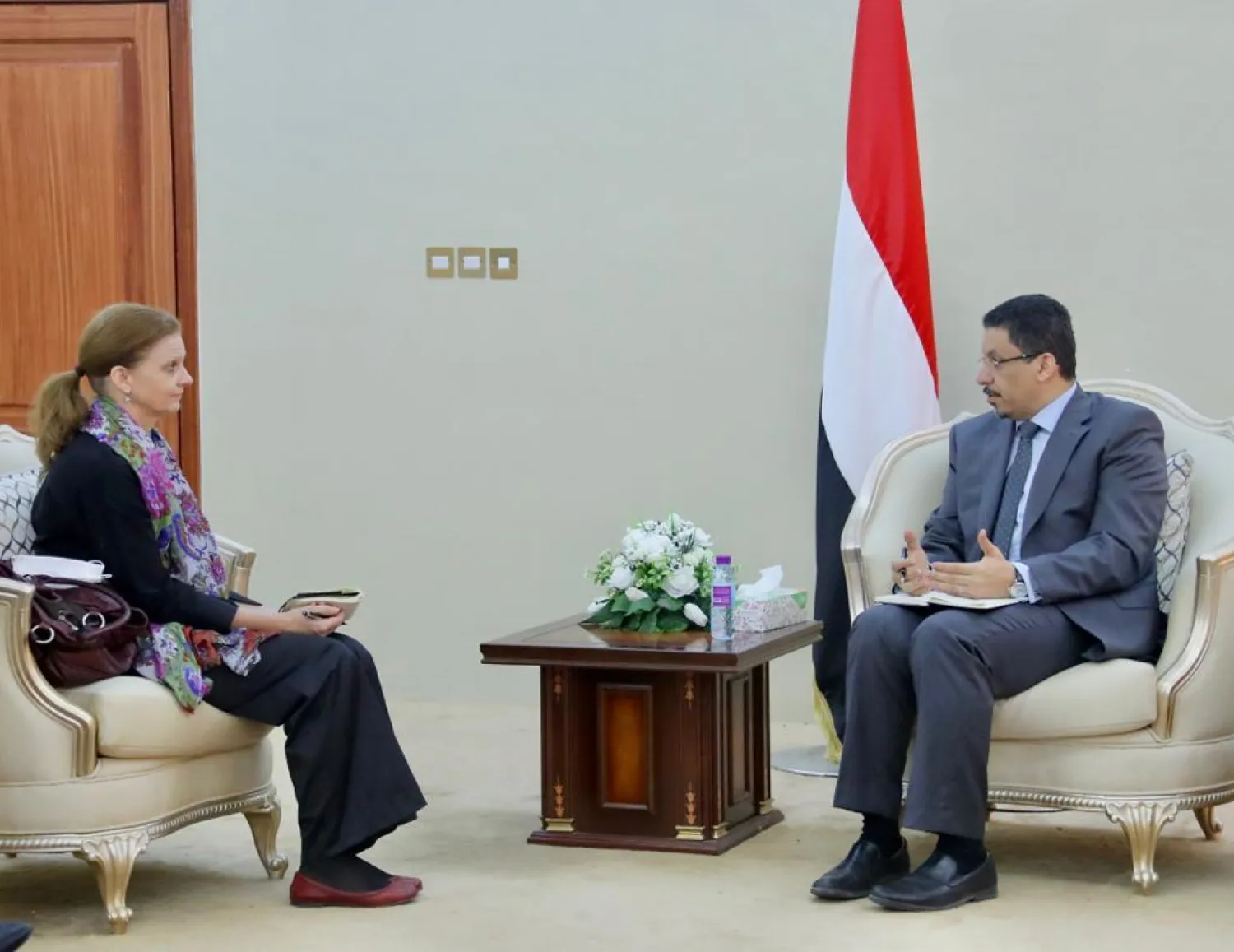The Yemeni government renewed Thursday its calls on the international community to force the Houthi militias to grant access for the technical UN team tasked with examining the decaying Safer oil tanker anchored off the coast of Yemen since 2015.
The Yemeni Foreign Ministry issued a statement over the issue following a UN report warning that the Houthi group's delay in granting security guarantees for the UN experts could lead to a major leakage, causing a major environmental and economic catastrophe.
“It is not surprising that Houthis backed down from allowing international engineers access to a dangerously decaying Yemeni oil tanker to repair it and save the Red Sea marine life,” the Yemeni Foreign Ministry said in a statement.
“The Yemeni government had repeatedly warned of the terrorist Houthi militia’s delay tactics and the use of the tanker - laden with more than one million barrels of crude and seen as a time bomb - as a bargaining tool despite the high risks of a leakage or an explosion that will leave very devastating and far-reaching impacts on the Red Sea marine life, the livelihoods of fishermen and more impacts hitting beyond Yemen."
The Houthis have promised UN experts access to the vessel and backed down several times including in July 2020.
Earlier on Tuesday, Spokesman for the UN Secretary-General Stéphane Dujarric said that Houthi officials have advised the UN to pause certain preparations pending the outcome of a "review" of their formal approval of the mission to deploy.
In this context, the timeline of deployment of the UN technical mission remains uncertain and dependent on the continued facilitation of all stakeholders involved, he said.
Meanwhile, Yemeni Minister of Foreign Affairs and Expatriates Dr. Ahmed Awadh bin Mubarak received on Thursday in the temporary capital Aden the Deputy Head of the UN's Mission to support Hodeidah Agreement (UNMHA) Daniela Kroslak.
The meeting discussed the Houthi group blocking of Hodeidah Agreement and its provocative and irresponsible actions on the UNMHA.
Bin Mubarak blamed the Houthis for spoiling the agreement, adding:" We're responsible for Hodeidah and all Yemeni cities and the Yemeni people, we want to see tangible results on the ground, not obstacles that impede the implementation".
Yemen’s Saba news agency said that Bin Mubarak asked Kroslak to report about the spoilers of the agreement.
"We are well aware that the insurgent militia prevents your movement to implement the agreement but we want you to speak out and name the spoilers", he stressed.









